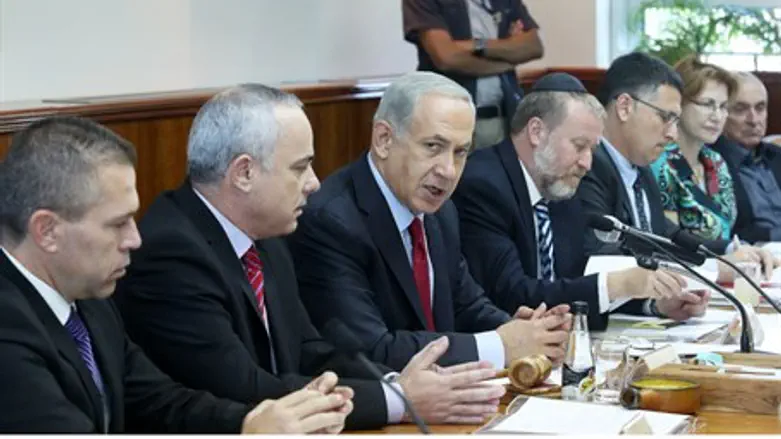
The Israeli government has urged the world to avoid striking a "partial deal" with Iran which would see a relaxing of sanctions, just hours before a new round of nuclear talks are set to begin between Iran and the so-called P5+1 group.
Following a meeting late on Monday, the security cabinet issued a unanimous statement warning the international community against any "partial agreement that would fail to bring about the full dismantling of the Iranian military nuclear program... (which) could lead to the collapse of the sanctions regime."
Iran is due to begin two days of closed-door negotiations in Geneva on Tuesday with the so-called P5+1 countries - the United States, Britain, France, China, Russia and Germany.
Israeli Prime Minister Binyamin Netanyahu has launched a media blitz in recent days, warning against concessions to Iranian President Hassan Rouhani.
Rouhani's conciliatory tone has raised hopes of a breakthrough in the decade-long dispute over Tehran's nuclear program, but Israeli leaders have branded him a "wolf in sheep's clothing," citing his past record as Iran's chief nuclear negotiator, during which he hid the true extend of the country's nuclear program from western negotiators.
The cabinet reiterated a warning made by Prime Minister Binyamin Netanyahu on previous occasions, cautioning the international community not to lift sanctions which have taken years to implement in exchange for minor concession by Iran would could be reversed "in weeks."
"Iran believes it can get by with cosmetic concessions that would not significantly impede its path to developing nuclear weapons, concessions that could be reversed in weeks," the statement said.
"In exchange, Iran demands an easing of the sanctions, which have taken years to put in place."
But the security cabinet said the P5+1 should "reject Iran's attempts to reach a deal that would leave it with the capability to develop nuclear weapons."
An Israeli official told AFP that the seven-member ministerial committee had met on Monday night but released the statement the following morning to coincide with the talks.
Israel, it said, did not oppose Iran having a peaceful nuclear energy program - one which would not require uranium enrichment or plutonium production, it said.
"Iran claims that it supposedly has the 'right to enrich.' But a country that regularly deceives the international community, that violates UN Security Council resolutions ...has no such right," it said.
The Geneva talks are aimed at reaching accord over Iran's nuclear program, which Israel and the West say is aimed at developing nuclear weapons but which Tehran says is for peaceful purposes only.
The Islamic republic has been slapped with several rounds of sanctions because of its nuclear program. Israel wants Iran to meet four conditions before the sanctions are eased: halting all uranium enrichment; removing all enriched uranium from its territory; closing its underground nuclear facility in Qom; and halting construction of a plutonium reactor.
Israel has refused to rule out military strikes against Iran, with Netanyahu telling the UN General Assembly this month that the Jewish state would act unilaterally if necessary.